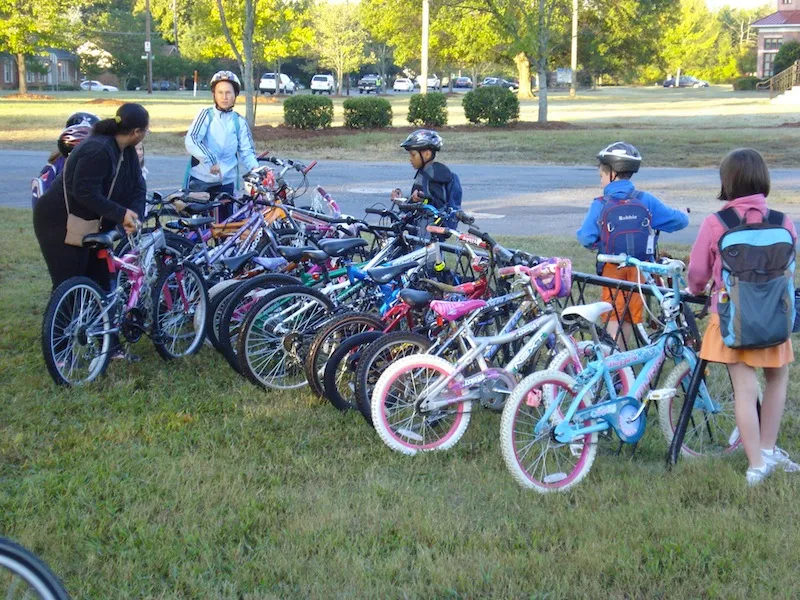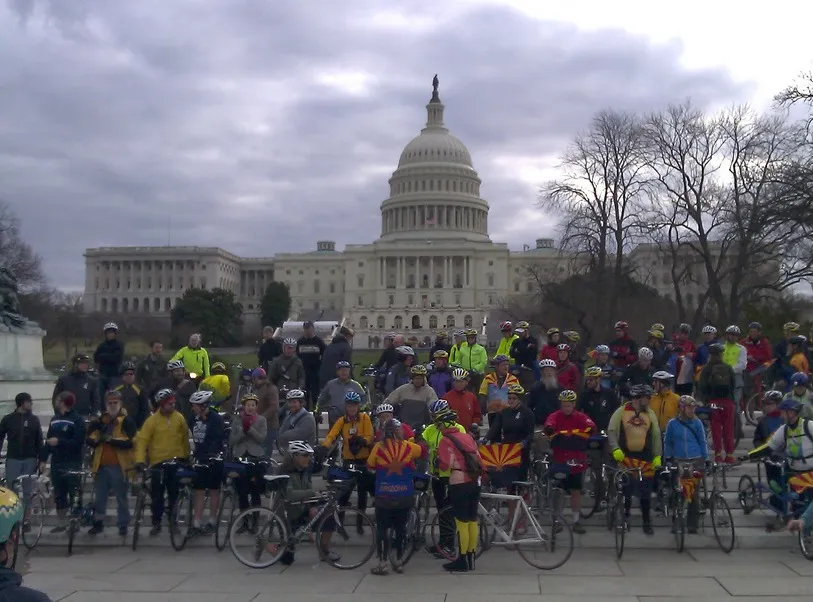Today, Thursday, 2 February 2012, the US House of Representatives’ transportation and infrastructure committee voted no — by two votes — on the Petri-Johnson-Lipinski amendment to the American Energy and Infrastructure Jobs Act that would have saved funding for biking and walking, including the acclaimed Safe Routes to School program.
Representatives Tom Petri (R-WI), and Timothy Johnson (R-IL) sought to defend bike and walking funding with an amendment to the proposed transportation bill; Daniel Lipinski (D-IL) co-sponsored the pro-biking amendment. The vote was ultimately, mostly, split along partisan lines, with Democrats voting for the amendment and Republicans against.
Representative Frank LoBiondo from New Jersey was the only non-sponsoring Republican to vote ‘yes’ on the amendment.
Without the amendment, the bill eliminates all benefits to bikes and pedestrians previously afforded by the Department of Transportation. Many biking and walking programs are served under the Transportation Enhancement Act, which makes up less than 1 percent of all federal transportation funding. The new Bill makes Transportation Enhancements optional, rather than required.
The League of American Bicyclists offered an assessment of the greatest losses under the new bill, including eliminating transit funds for bicycling, the requirement for safe access to bridges, and the jewel of the Department of Transportation, in regards to youth development and America’s health and obesity battle, Safe Routes to School.
The proposed amendment was set to save funding for the two most important programs: Safe Routes to School and the Transportation Enhancement Act.

Without Safe Routes to School, this rack might be empty
The amendment to the American Energy and Infrastructure Jobs bill was voted on after a short two-day opportunity for review of the bill’s text, and without hearing. After the ‘no’ vote came in regards to the proposed amendment, Rep. Peter DeFazio (D-OR) gave a passionate speech to the House, first saying that no member had read the bill they were voting for. “We’re failing to distinguish between investment and consumption,” he said. “This committee needs to be about investment.
“We’re going back to — I don’t know what era — we’re going to say that mass transit is not an obligation of the highway trust fund, we’re going back to the pre-1980s in this country,” said DeFazio addressing the floor. “Wow. This is incredible, all to have the ruse that we can somehow deal with these problems without raising any money and investing in our country.”
The League of American Bicyclists argue that bikes are part of the diversification of American’s collective investment. “It’s still a big issue and a big challenge for us to make that case,” Andy Clarke, president of the League of American Bicyclists, told BikeRadar. “We are evidently still not successful enough in making it, because there are still people who think that it’s kind of a frivolous luxury that we can do without, so that remains a big part of the message that we have to bring up to the Hill. This [cycling] is about jobs and the economy, and all of the stuff that the big car companies talk about. We [cyclists] are part of the same picture now and there’s more members who are getting it each time we have to go through something like this.”
From here the bill goes to the House floor for a vote without any provisions for bikes. To be enacted into law, however, it must be combined with the Senate’s equivalent bill and voted on, then pass through the President’s office. And this all needs to happen before the current Transportation Bill expires on 31 March.
Opportunities to amend the bill come at each step of the House, Senate and when it is combined. “There is the opportunity when the debate happens on the floor of the house to ask for amendments and logically we would probably start with the one that was introduced but not successful today,” said Clarke. “The political calculation we have to make is: do we have any chance of doing a better in terms of peeling off Republicans to support such an amendment on the floor, than we did in the committee — that would be quite a heavy lift, quite a challenge to do that. And it may be that we consider the other alternative, which is to appose the bill.”
Clarke said that the committee had to work hard to overcome the amendment and speculates that “maybe they’ll think twice before pissing us [national cycling movement and Washington lobby] again,” he said.
Cycling citizens are not helpless
Despite the defeat today, and the seeming uphill battle on Capitol Hill, Clarke was upbeat about cycling in the US. “The other thing that I think keeps us going and the reason there is great optimism still within the cycling community — and we’ll see it again at the Summit this year, I’m sure — is that despite what’s going on in Washington the momentum at the local level is amazing,” he said. “Every city we go to has great things happening for cyclists and it’s encouraging to see that.”
Clarke stressed the importance of cyclists’ efforts in taking the time to make calls and send emails to their representatives — even if it’s only to send a form email to a member of Congress. “Even in this day and age a relatively small number of emails and calls and letters to a member of Congress make a difference,” he said. “When they’re hearing from 40 or 50 people on one issue at one given moment that registers.”
